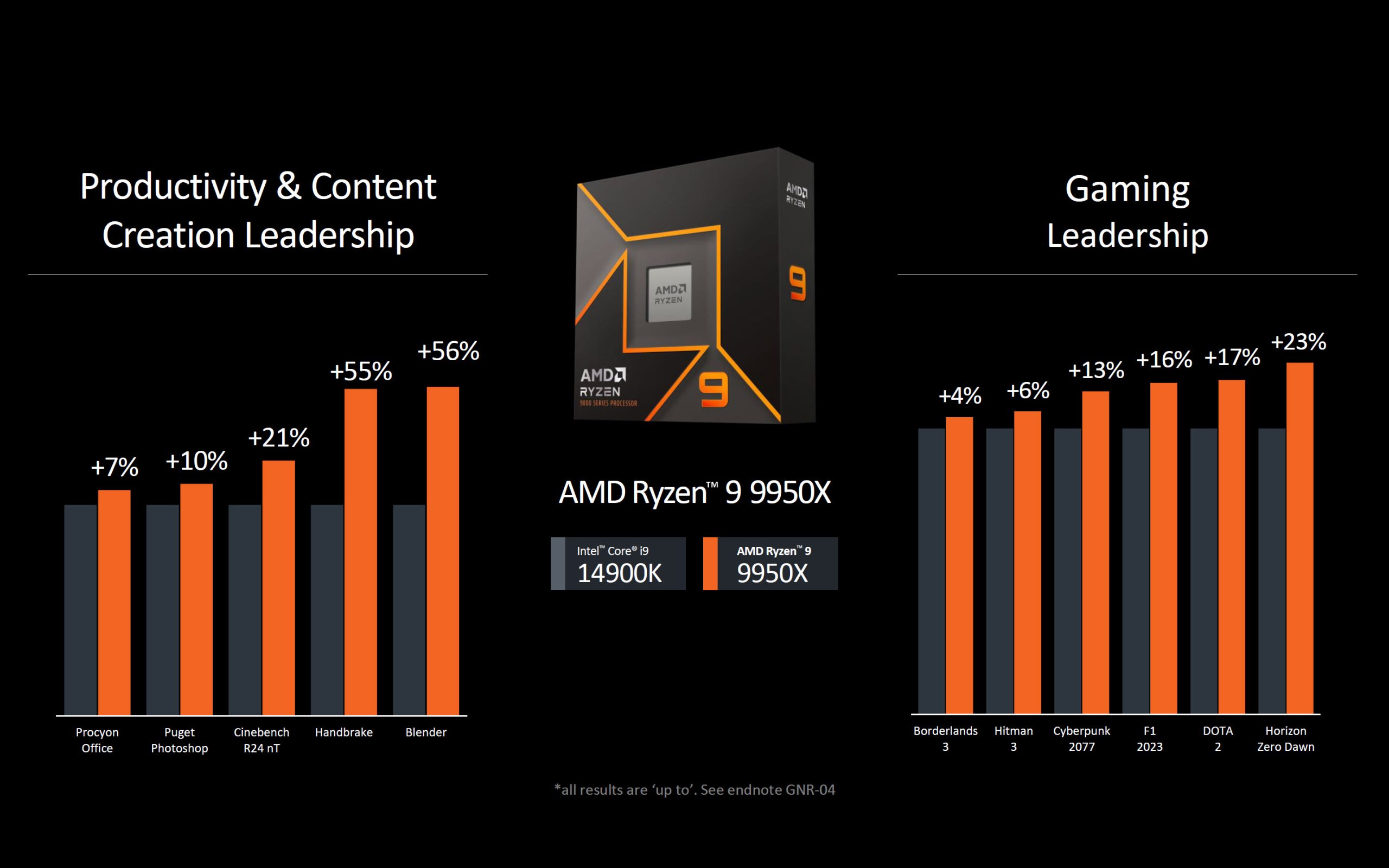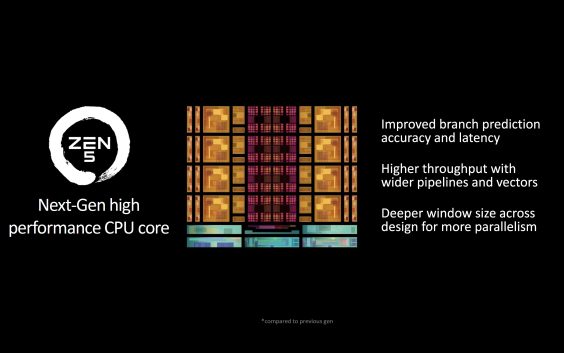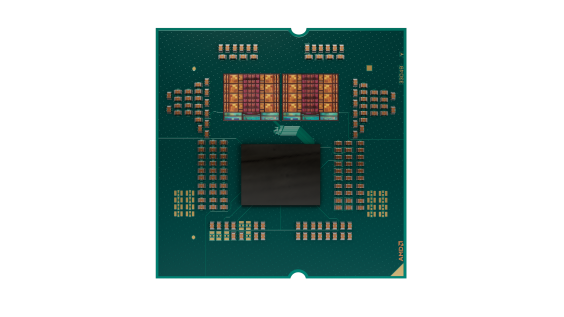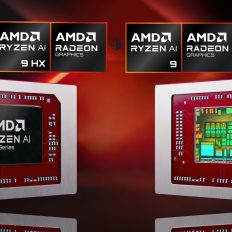AMD has finally announced its Ryzen 9000 "Zen 5" Desktop CPUs, arriving with up to 16 cores and featuring some huge IPC gains versus Zen 4.
AMD Ryzen 9000 Desktop CPUs Bring Up To 16 Cores, 5.7 GHz Clocks & 16% IPC Improvement, Ryzen 9 9950X Leads The Pack
The AMD Ryzen 9000 Desktop CPU family, codenamed Granite Ridge, is based on the latest Zen 5 core architecture and targets high-performance Gaming PCs. The family is bringing a range of new features with the Zen 5 cores being the highlight while being supported on existing and upcoming AM5 platforms with improved I/O and DDR5 memory support.

So before we talk about the Ryzen 9000 Desktop CPU family, we first take a glance at the new and improved Zen 5 core architecture which offers:
- Improved branch prediction accuracy and latency
- Higher throughput with wider pipelines and vectors
- Deeper window size across the design for more parallelism
In several aspects, the AMD Zen 5 core architecture offers up to a 2x increase such as the Instruction Bandwidth for the front-end instructions, data bandwidth (L2 to L1 and L1 to FP), and AI perf (AI & AVX512 Throughput). The Zen 5 CPU cores (CCDs) are based on the TSMC 4nm process node while the IOD is based on the TSMC 6nm process node. They come in the same peak config of 2 CCDs and 1 IOD on consumer platforms.

These new changes have resulted in a significant IPC uplift averaging 16% versus Zen 4. In certain cases, the Zen 5 core can reach up to +35% IPC such as (Geekbench 5.4 AES XTS) and another key area that has been improved upon is the L2 and L3 cache structuring. AMD also made some significant changes to the IMC which now result in much higher EXPO/XMP memory support and the Infinity Fabric clock has been raised from 2000 MHz on Zen 4 to 2400 MHz on Zen 5 with DDR5-5600 speeds natively supported.
AMD Ryzen 9000 Desktop CPU Lineup
So as for the lineup, the AMD Ryzen 9000 "Granite Ridge" family is composed of four SKUs to start. These include the Ryzen 9 9950X, Ryzen 9 9900X, Ryzen 7 9700X and the Ryzen 5 9600X. Let's take a look at the specifications of these chips.

The AMD Ryzen 9 9950X CPU is the flagship offering with two Zen 5 CCDs and a single IOD. The CPU offers 16 cores, 32 threads, and a max boost clock of up to 5.7 GHz, the same as the Ryzen 9 7950X. It comes with 80 MB of cache (64 MB L3 + 16 MB L2) and has a TDP of 170W.

Next, we have the AMD Ryzen 9 9900X, the 12-core and 24-thread variant. This chip has a boost clock of up to 5.6 GHz and a 76 MB cache. The interesting thing with this chip is that it has a TDP of 120W much lower than the 170W of Ryzen 9 7900X chips.
- Ryzen 9 7950X (170W) -> Ryzen 9 9950X (170W)
- Ryzen 9 7900X (170W) -> Ryzen 9 9900X (120W)
- Ryzen 7 7700X (105W) -> Ryzen 7 9700X (65W)
- Ryzen 5 7600X (105W) -> Ryzen 5 9600X (65W)
For the more mainstream users, AMD has the Ryzen 7 9700X which is an 8-core CPU with 16 threads, a boost clock of up to 5.5 GHz, 40 MB of cache (1 CCD with 32 MB L3 + 8 MB L2), and a low TDP of 65W which is also much lower than the 105W TDP featured on its predecessor, the Ryzen 7 7700X.

Lastly, the AMD Ryzen 5 9600X CPU features 6 cores and 12 threads. This chip has a maximum boost clock of up to 5.40 GHz and packs 38 MB cache and the same 65W TDP. Only the AMD Ryzen 7 and Ryzen 5 CPUs see a clock bump over their predecessor while the Ryzen 9 chips retain the same clock speeds.

AMD Ryzen 9000 "Zen 5" Desktop CPU Performance
AMD also shares a few performance figures for its upcoming Ryzen 9000 "Zen 5" Desktop CPUs. The Ryzen 9 9950X has been compared against the Intel Core i9-14900K. It offers up to a +56% leap in productivity performance (+29.8% average uplift) and up to a +23% leap in gaming performance (+13.2% average uplift), a significant jump over Intel's flagship CPU.
In gaming, the Ryzen 9 9950X should end up faster than the Zen 4 3D V-Cache chips but we can expect Zen 5 3D V-Cache to further take this leap forward. AMD states that the improvement in game performance comes from the reduced latencies associated with the chip.
AMD also states that the Ryzen 9000 "Zen 5" Desktop CPUs make for the ultimate content creator AI platform with a 100% uplift in graphics bandwidth thanks to dedicated PCIe 5.0 lanes which the current Intel lineup lacks and a 20% AI acceleration in LLMs such as Mistral. Do note that AMD isn't incorporating an NPU on its Ryzen 9000 Desktop CPUs but the new architectural improvements lead to better AI performance than the competition.
AMD Ryzen 9000 "Zen 5" Desktop CPU Pricing & Availability
No pricing details are currently shared, but we can expect the Ryzen 9000 CPUs to cost around the same ballpark as the Ryzen 7000 series. Meanwhile, AMD confirms that the CPUs will launch in July this year so we will get an update or two very soon.
Ryzen 9000 CPU Package:
Ryzen 9000 CPU Chip Shot:
AMD Ryzen 9000 "Granite Ridge" Desktop CPUs Preliminary Specs:
| CPU Name | Architecture | Cores / Threads | Base / Boost Clock | Cache | Graphics (Integrated) | Memory Support | TDP | Price (MSRP) |
|---|---|---|---|---|---|---|---|---|
| Ryzen 9 9950X | Zen 5 | 16/32 | 4.3 / 5.7 GHz | 64 MB L3 + 16 MB L2 | 2 x RDNA 2 CUs | DDR5-5600 | 120W | $699 USD? |
| Ryzen 9 9900X | Zen 5 | 12/24 | 4.4 / 5.6 GHz | 64 MB L3 + 12 MB L2 | 2 x RDNA 2 CUs | DDR5-5600 | 120W | $549 USD? |
| Ryzen 7 9700X | Zen 5 | 8/16 | 3.8 / 5.5 GHz | 32 MB L3 + 8 MB L2 | 2 x RDNA 2 CUs | DDR5-5600 | 65W | $399 USD? |
| Ryzen 5 9600X | Zen 5 | 6/12 | 3.9 / 5.4 GHz | 32 MB L3 + 6 MB L2 | 2 x RDNA 2 CUs | DDR5-5600 | 65W | $299 USD? |





















